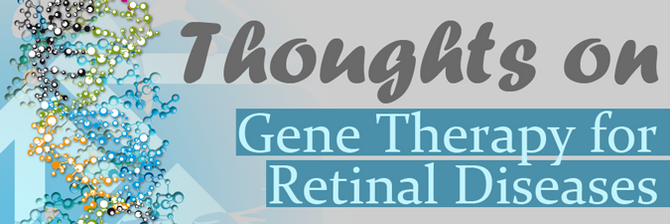You are here: vision-research.eu » Vision Research » Vision in the European Focus » 2014 » Thoughts on Gene Therapy for Retinal Diseases
Thoughts on Gene Therapy for Retinal Diseases

Dr. Robert McLaren Oxford trial that improved vision in choroideremia raises hopes that gene therapy may be applied to common causes of blindness. His publication “Retinal gene therapy in patients with choroideremia: initial findings from a phase 1/2 clinical trial” in The Lancet.
Two men with progressive blindness have regained some of their vision after taking part in the first clinical trial of a gene therapy for the condition.
The men were among six patients to have experimental treatment for a rare, inherited, disorder called choroideremia, which steadily destroys eyesight and leaves people blind in middle age.
After therapy to correct a faulty gene, the men could read two to four more lines on an optician's sight chart, a dramatic improvement that has held since the doctors treated them. One man was treated more than two years ago. (see article in the GUARDIAN under http://www.theguardian.com/science/2014/jan/16/sight-partly-restored-gene-therapy-oxford-hospital)
Dr. Hendrik Scholl, a professor of ophthalmology in Wilmer's retina division, contributed an editorial on a recent study on the effectiveness of gene therapy to treat progressive retinal diseases. The results of the study, whick took place at Oxford Eye Hospital in the U.K., were published by Lancet on January 16 and indicated that a group of patients with choroideremia, an inherited retinal disease which leads to blindness by middle age, showed some improvement in vision after receiving a single injection of gene therapy. Dr. Scholl was chosen by Lancet to comment on the study given his expertise in inherited retinal and macular degenerations.
The full study is also available on Science Direct, with Dr. Scholl's comment also available.
Dr. Scholl was interviewed on Canada's CTV network's morning news program about the positive implications of the study.


